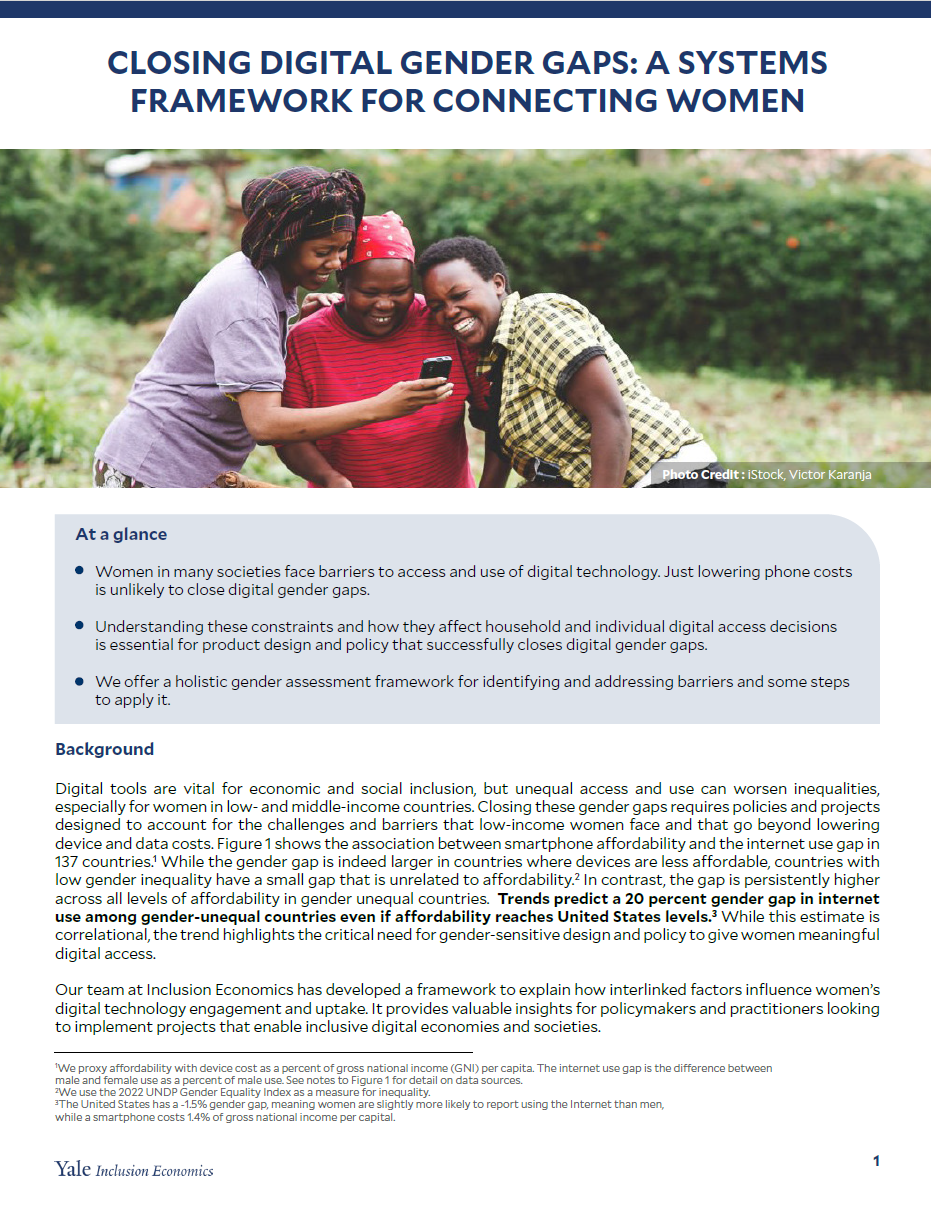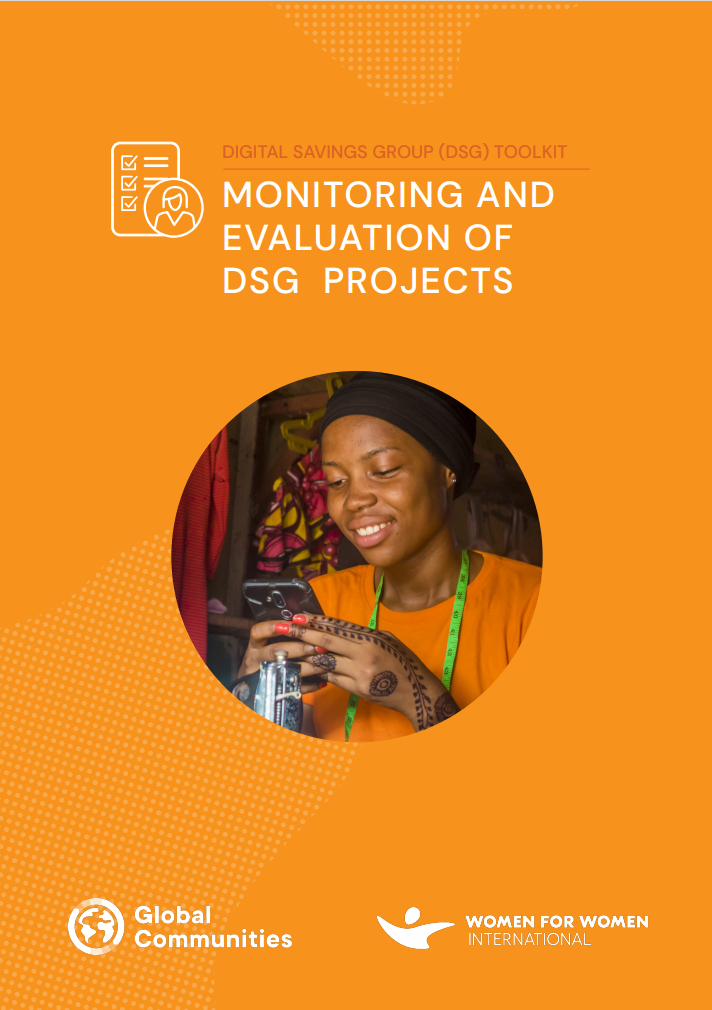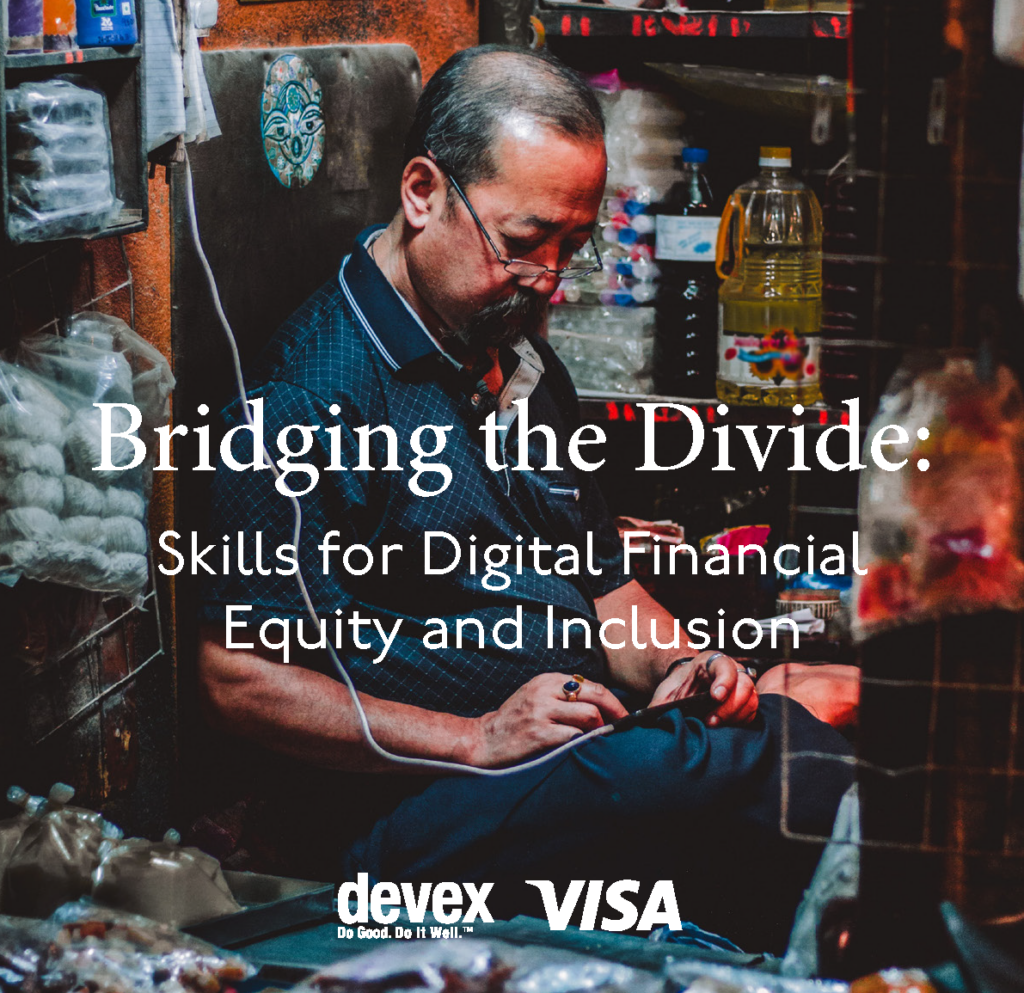Access to digital tools is a critical gateway to opportunity—but in many parts of the world, women are systematically excluded from digital spaces. This resource from Yale Inclusion Economics presents a conceptual framework to help policymakers and practitioners understand the complex, interlinked factors that influence women’s adoption and use of digital technologies.
Drawing from global data and gendered insights, the framework emphasizes that lowering the cost of devices or data alone isn’t enough. Instead, it encourages a holistic approach that accounts for women’s perceived and actual returns from digital use, household decision-making dynamics, agency, and the broader enabling environment—including norms, safety, infrastructure, and access to opportunity.
This tool can be used to assess digital inclusion efforts, diagnose persistent gaps, and design more effective, gender-sensitive digital policies and products. Whether launching new programs or refining existing ones, this framework provides a roadmap for more inclusive digital ecosystems.




